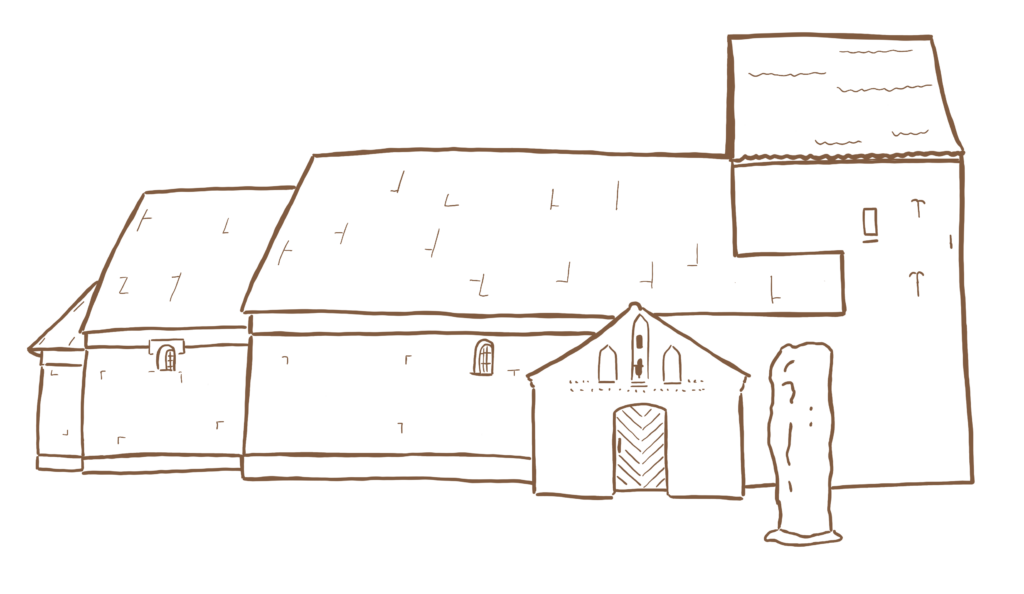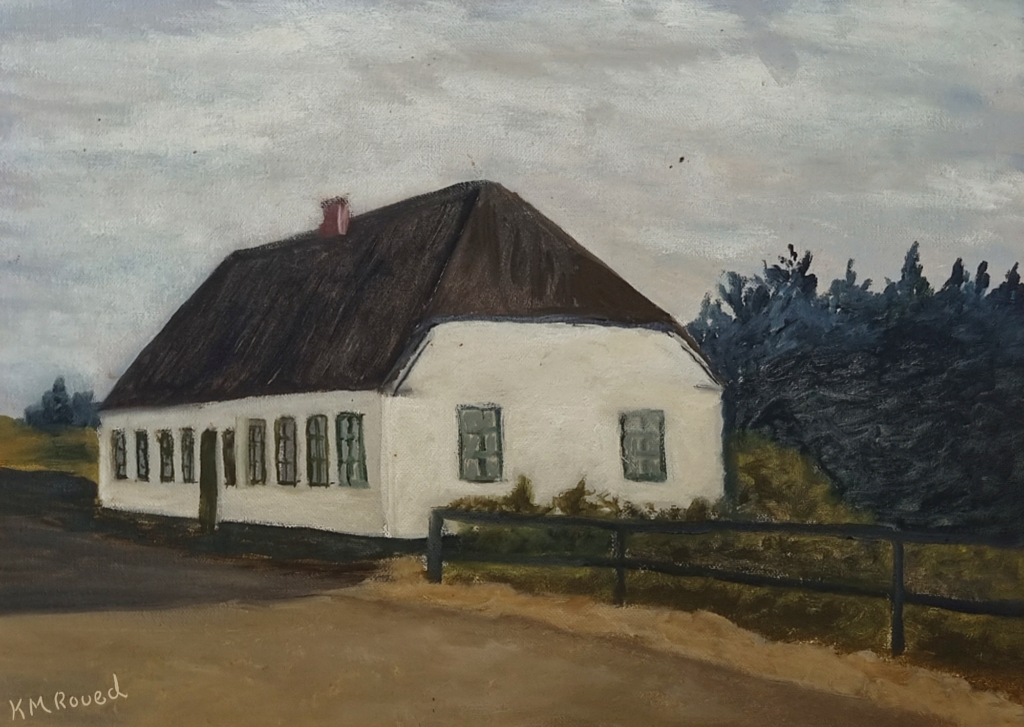This is an updated version of a blog post I originally published in 2012, recounting a story that came to my attention in 2002 about an inheritance case in my family in the early 1980s. I have decided to retell the story in light of the recent Danish documentary series Forsvundne Arvinger (Lost Heirs), which has been airing since 2018. This Danish adaptation of the Heir Hunters concept was mentioned in the earlier version of my blog post.
The story involves an inheritance case similar to those featured in Forsvundne Arvinger on DR. However, instead of the polished presentation of hosts Mette Frisk and Adam Jon Kronegh, this story centers on a Danish genealogist named Kell Ladewig and a German bank. Hoerner Bank (founded in 1849) is one of the largest and oldest inheritance mediators in Germany which began as an agency for emigrants and specialises in the recovery of American inheritances. So this type of business is not a new phenomenon. What the BBC series calls “heir hunters” is also known as “probate genealogy.” This involves identifying heirs in cases where no immediate family or will is apparent.
This process is inherently international, as heirs are often located across borders. Consequently, different inheritance laws apply depending on the country of origin of the estate. Typically, lawyers administering the estate initiate the search for heirs. In some countries, however, specialized firms may conduct these investigations independently. Upon identifying an unclaimed inheritance, these firms often fund the genealogical research themselves, recouping their expenses by charging commissions to the heirs they locate.
Beyond the monetary aspect of inheritances, recent episodes of Forsvundne Arvinger emphasize another fascinating dimension that resonates with anyone pursuing family history as a hobby: the exploration of identity and a deeper understanding of oneself. Moreover, family history fosters connections between people. This is evident in the joy and curiosity participants often display when learning about their family’s history and in the relationships formed between family members who were previously unaware of each other or had lost contact. This theme mirrors my own experience with an inheritance case that has profoundly shaped my life.
The reason my surname is Roued today is that it is a family name. However, it is not a family name in the traditional sense – meaning that my father had it, and his father had it, and his father had it…
In fact, I wasn’t even christened with the name. It wasn’t until a few years later that my mother had it added as my middle name. The whole story, however, began a few years earlier, in 1978, when an American man named Ludwig Glimborg passed away at the age of 73 in Oak Lawn, a suburb of Chicago.

Ludwig was my great-grandmother’s cousin, making him my grandmother’s second cousin. For my grandmother, who became involved in the case, this familial connection was something she had neither thought much about nor known existed.
According to U.S. census records, Ludwig appears to have been the sole surviving child among six born to Elene Kristine Roued and Gunnard Andrew Glimborg (a Swede about whom I have yet to uncover further information).
My grandmother first heard about the inheritance from her second cousin Ludwig via a letter in 1985. The letter came from a Danish genealogist, Kell Ladewig, based in Lyngby, who explained that he had been tasked with identifying names and addresses of relatives connected to Elena Kristine Roued, born in 1869 in Skærbæk to parents Johanne Nielsen and Johan Ludvig Roued. My grandmother responded with information about her family and provided photographs of her parents’ gravestones in Læborg.

The connection to Ludwig traces back through my grandmother’s grandmother, Ludwig’s cousin, whose mother (born Roued) was Ludwig’s aunt.
Genealogist Kell Ladewig compiled the names of heirs through a questionnaire, which he submitted to the German bank responsible for distributing the estate. The entire inheritance amounted to approximately a quarter of a million U.S. dollars at the time. My grandmother and her siblings each inherited 1/360 of what remained after settling the estate. The “American business associate” (as described by the bank) claimed one-third as an agreed processing fee. Having watched the BBC One program Heir Hunters, I now understand that locating heirs can be a lucrative business. My grandmother received what would now amount to about $1,000.

Changes to Danish naming law
In Act no. 140 of 1961, it became possible to change one’s name to a family name if it had been borne by one’s parents or grandparents. In 1982, this was extended to include surnames borne by great-grandparents (Act no. 193 of 29/04/1981) and later further extended to include surnames borne by great-great-grandparents (Act no. 524 of 24/06/2005). Read more on the Danish Wikipedia page about Danish naming laws.
However, as with the focus of the recent Danish series Forsvundne Arvinger, the true value of the American inheritance for my family lay in the knowledge it brought. It illuminated our small part in the broader narrative of emigration to America, provided an identity linked to a somewhat obscure family name, and reinforced the bond between mother and daughter, which now endures into the fourth generation. Inspired by Denmark’s new naming law in 1982, my mother quickly persuaded my grandmother to adopt Roued as a middle name, which allowed her to pass it down to me.
Since first learning about the inheritance in 2012, I have traced the origins of the name Roued. Thus far, I have followed its roots back to 17th-century southern Jutland, with one branch migrating to Copenhagen and evolving into the surname Rohde. Historical records reveal challenges in standardizing the name’s pronunciation, with variations including Roued, Roved, Roud, Rohde, Rode, and even Raaed.
Name pronunciation
I highly recommend the online tool HearMyName.net, which allows users to share links to the preferred pronunciation of uncommon names. Here, I use the Danish pronunciation for Danish contexts and the British pronunciation for English contexts.
Danish pronunciation: https://hearmyname.net/say/da-dk/Roued
English pronunciation: https://hearmyname.net/say/en-gb/Roued